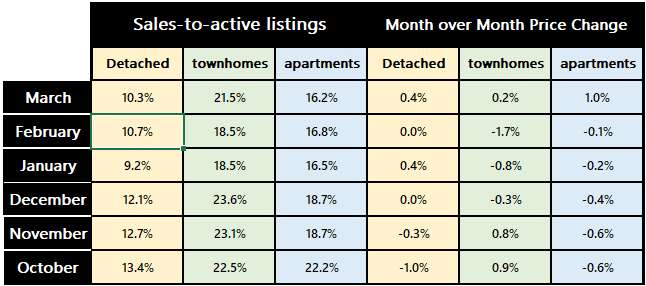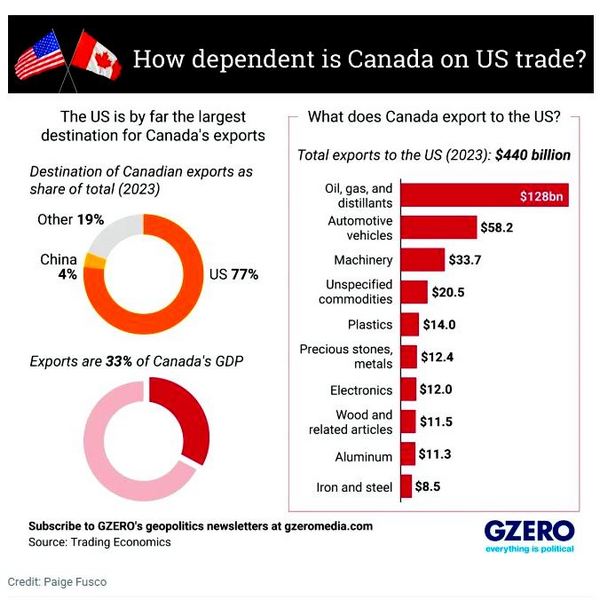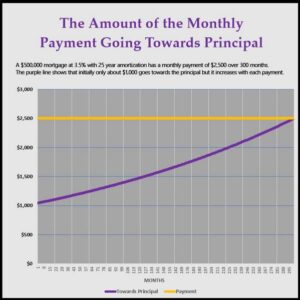Welcome to the March Metro Vancouver Real Estate Market Update. Sales numbers continue to be weak. In March, sales were 36.8% below the 10-year seasonal average—worse than last month’s 28.9% shortfall. Meanwhile, sellers kept coming into the market. The total number of listings in March was a staggering 44.9% above the 10-year seasonal average.
With such a setup, you would expect relatively low demand compared to supply, and the sales-to-active listings ratio reflects this. From the table below, you can see the ratio is 10.3% for detached homes, 21.5% for attached homes, and 16.2% for apartments. Typically, anything between 12% and 20% is considered balanced, while below 12% indicates weak demand. However, as shown in the table, all categories of housing saw month-over-month price increases. This is hard to explain—perhaps the small number of buyers are competing fiercely for the best listings?

Early last month, there were concerns that the economy was too hot and that the Bank of Canada might delay interest rate cuts. I question this narrative, especially since the same month also brought news of a weakening job market—only one job for every three unemployed people actively looking. The number of people who have quit looking for work has also increased, and mortgage arrears are creeping up.
But this conversation has become secondary in light of the tariff war initiated by the U.S. on April 2nd. This will likely force the Bank of Canada to lower interest rates to support an economy that could slip into recession if the tariffs remain in place. And more and more, it seems like they will. I’m in the camp that believes Trump genuinely thinks this aggressive plan to bring manufacturing back to the U.S. will work. Since the U.S. is our largest trading partner, this policy will hit Canada harder than most. I suspect the Bank of Canada will continue cutting its overnight rate this year if the tariffs persist. That would lower variable-rate mortgages. The bond market should anticipate a weakening Canadian economy and bid yields lower, which in turn would bring down fixed mortgage rates—although in times of severe panic, banks might raise rates to cover added risk.
This news has overshadowed a couple of other notable developments. One is that Mark Carney has cancelled the capital gains increase that was announced earlier. The capital gains inclusion rate will remain at 50%, and we won’t see the proposed 66.67% rate come into effect. While this is good news, I’m sure it’s frustrating for those who went out of their way to sell assets ahead of the anticipated change.
The other development is the provincial government’s cancellation of the secondary suite program, which would have provided a forgivable loan of up to 50% of the renovation costs for adding a new suite. I’m sure this is causing headaches for people who were relying on the program.
Not a lot of great news out there. I hope Easter brings you a bit of reprieve from all the negativity. Stay strong! And Happy Easter!





